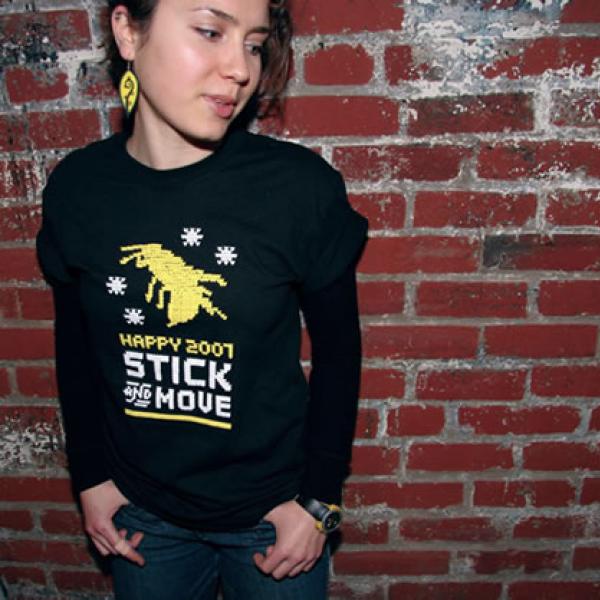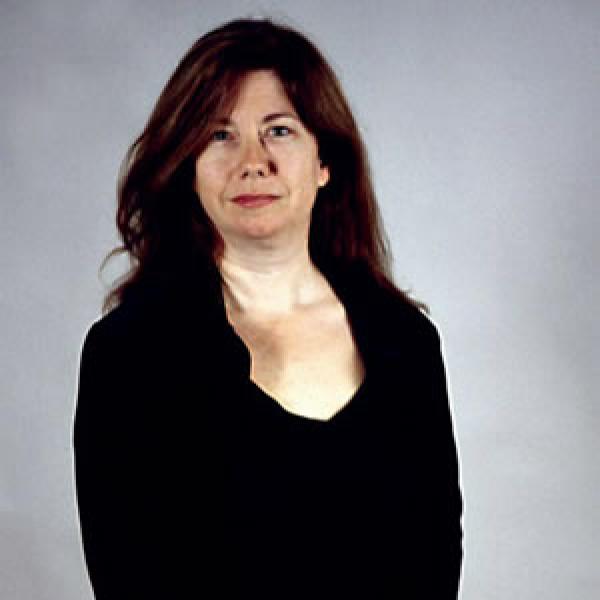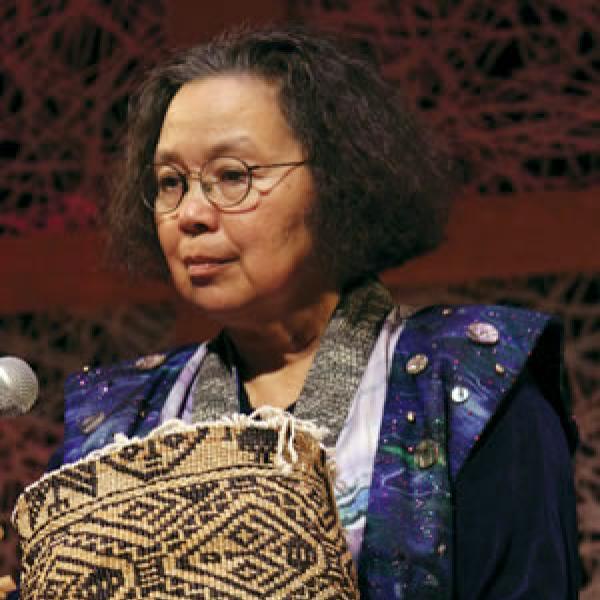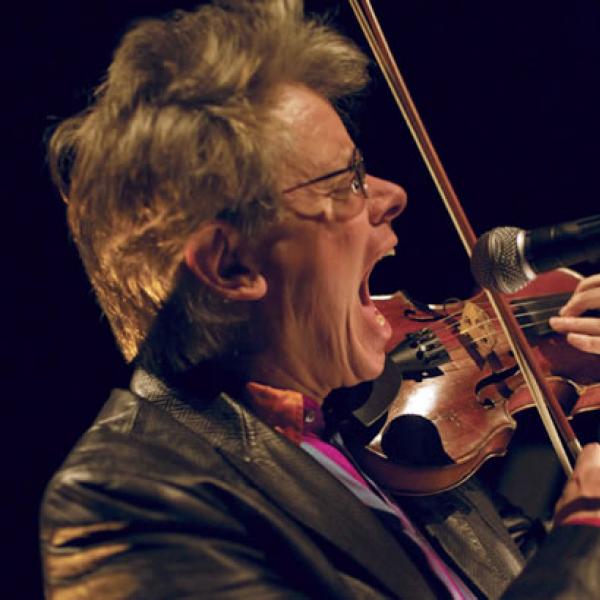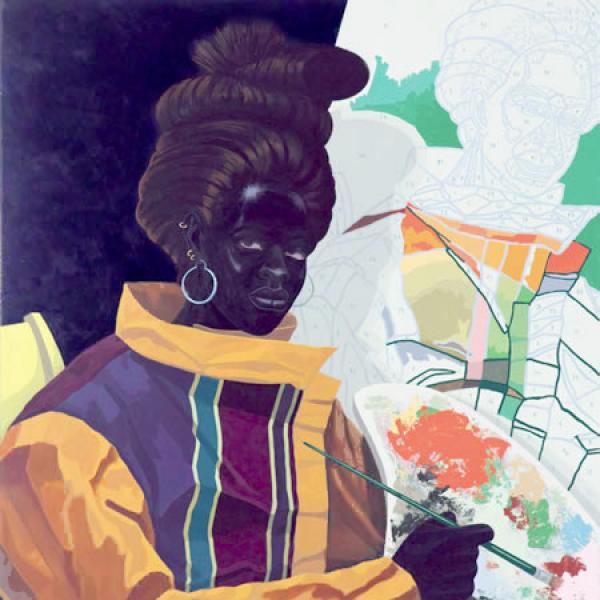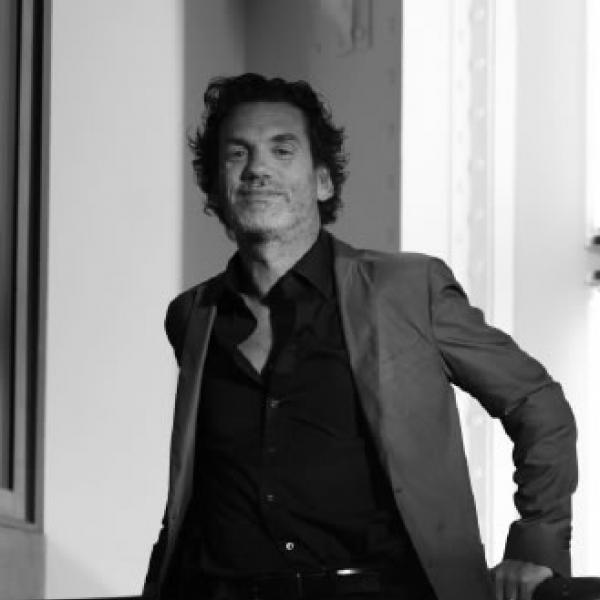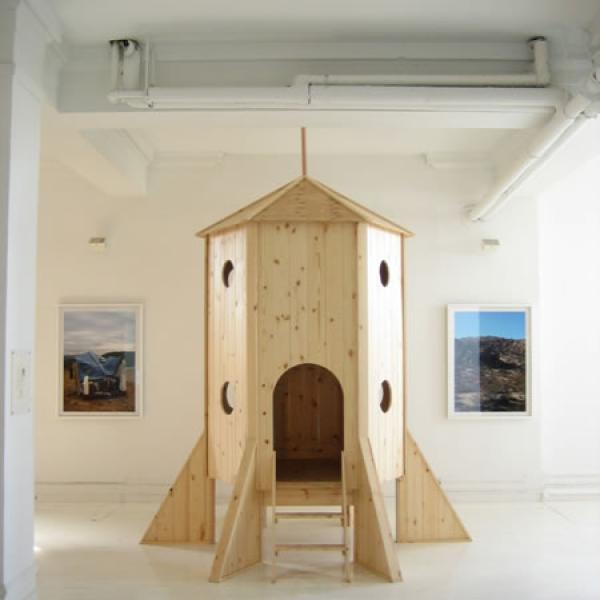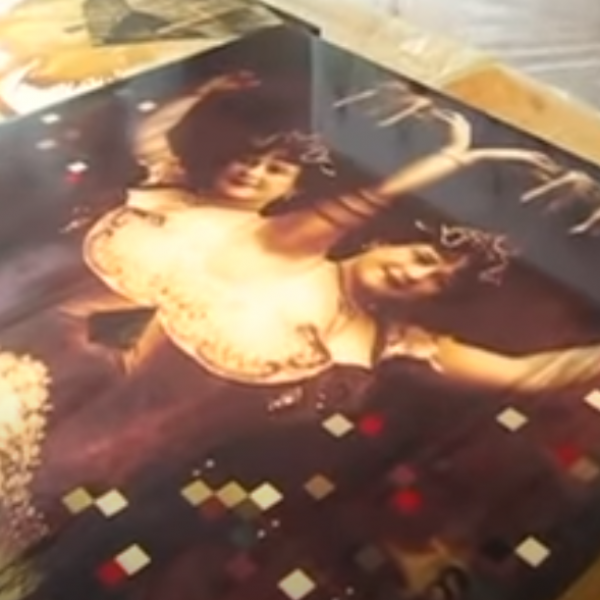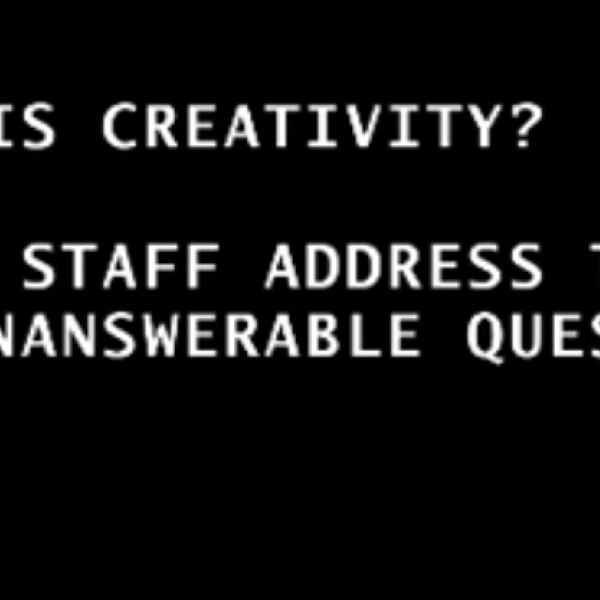Wind Me Up, Chuck!
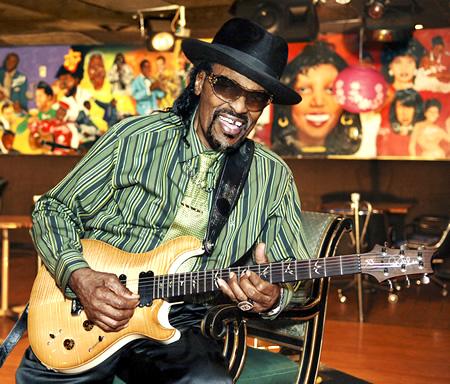
NEA National Heritage Fellow Chuck Brown talked with NEA’s Josephine Reed about the genesis of go-go music, a genre of music he developed in Washington, DC in the 1970s.
Jo Reed: We're going to hear one more song and this is a familiar one.
<music plays>
Jo Reed: I love that, I love that "Gimme the bridge now". Where did that come from? That is so cool and I don't even know why it is so cool but it just is.
Chuck Brown: Well, you know why it's so cool? I stole it from James Brown. <laughter>
That was the father of go-go and National Heritage Award fellow, Chuck Brown, talking about the song that put him on the map, “Bustin’ Loose.”
I’m Josephine Reed, with the national Endowment for the Arts.
Chuck Brown is a musician with deep roots in Washington DC…he’s the creator of the music genre, go-go…a style of music that is indigenous to DC. It’s beloved in the city and while it’s traveled around the world, no one has embraced this music like the folks in the District. But people all over have embraced Chuck Brown; he’s recorded more than 20 albums and sold 1.5 million records since his first hit, "We the People," in 1971. But it’s Chuck’s live performances that set him apart…
Go-go is a musical style that feeds off the audience; it relies on call and response - the audience and the musicians interacting and no one interacts with an audience the way Chuck Brown does. Of course, go go is a whole lot more than call and response. So, when I spoke to Chuck Brown, I asked him to define go-go.
Chuck Brown: Well, it's just another form of funky music. That's number one. Number two, that Latin African sound was the idea that I took from Los Latinos and added them big congos in there to mix that Latin with that African feel and did top 40 with that. Then we'd break down. It got to the point we'd break down, this was in '76, of course, we was breakin' down before '76 but it really caught on in '76, when Grover Washington came out with a tune called “Mister Magic.” That beat that it had, I recognized that. It had a special feel to it because that was the beat that the saints and I would use to jump and shout off and it was real fab. <makes beat noises> Everybody jumping and shouting, you know? That was the beat that I wanted and it worked perfectly. '78, we recorded “Bustin' Loose.” It came out in '78. It was a gigantic hit in the country and across over to Europe. Then, after that, had a few problems, you know, before I came up with anything else.
Jo Reed: But back to go-go because, Chuck, not many people have developed an entire genre of music. I mean, that is so rare. Did you know what you were doing when you were doing it?
Chuck Brown: Well, yes, ma'am, I was trying to create a sound of my own but it ended up being a sound for the town and all the other bands jumping on it, you know? Everybody like that groove, you know? Break down and you caught a response to the people, you know? And that's what it's about and it just goes and goes. It got to the point we didn't have to do no more ballads, didn't have time to do no ballads, everybody wanted to stay on the floor. Once you come through that door, you're gonna get on the floor.
Jo Reed: And you started the shout out.
Chuck Brown: That's it. I started calling their names out. They loved that, you know? Dedicated, special dedication to this person, that person.
Jo Reed: To parts of the city, neighborhoods?
Chuck Brown: Yes, ma'am and to the people in the audience, you know? You'd call somebody's name out, that make people feel good when you call their name. "Oh, he said my name," you know what I mean? I feel the same way somebody say my name. Back in those days, the little kids, man, they had those buckets, they had pots and pans, they had the best rhythm you ever wanted to hear. The minute you hear it, you're going to move. That's what go-go is designed, to make you move.
Jo Reed: Now, where did the name go-go come from?
Chuck Brown: I just thought of it because, you know, you got night clubs, go-go club, go-go girls dancing in the club but there was no go-go music so I decided to call it go-go music simply because it don't stop, it just keep going and going and going and I've seen people- I got some cousins in Richmond, Virginia. One is about 94 and another one is about 91 and, let's see, 88, 89. They'd been on about I was some kin to them. They seen me on TV and went, "That's Lila's boy. We used to feed him. Change his diapers." <laughter> That was about 65 years ago, more than that maybe, 70 years ago, you know? So finally we got to meet, we got to know each other and they got on that floor dancing the go-go. They didn't think that they were going to stay on that floor that long, you know? They're 90-some years old. They stayed on the floor the whole time we played. We played about maybe hour and 45 minutes there in Richmond. They stayed on the floor. They said, "Hey, never had that much exercise since they've been..." <laughter> since they've been in the world.
Jo Reed: When you started playing, there were still tables and chairs in clubs.
Chuck Brown: Tables and chairs, yes, ma'am. Everybody used to come in there dressed all up, you know, ladies come in with their mink coats and things and fellas with their suits and neckties and things and everybody sit around until they got a little tipsy. We up there playing, you know, might do a little jazz, you know, just warm 'em up. They're relaxing. But, as soon as we started that go-go thing, and as soon as they hear that beat, next few weeks, they were coming in. No mink coats, no suits and ties, tables and chairs moved out of the way because they started dancing on top of the tables and chairs so they had to get them out of there. All the tables and chairs was gone, nothing but people on the floor partying. Wind me up.
Jo Reed: Well, you kind of took a house party and you brought it to a club.
Chuck Brown: Yes. That's the way it was. One great big family affair.
Jo Reed: And we're going to hear a little cut now from a cover that you did and it's a very famous song, you covered it but, boy, did you make it your own, so I want us to hear a little bit.
Chuck Brown: All right.
<music plays>
Chuck Brown: I changed the lyrics, you know? I had to change those lyrics.
Jo Reed: You listen to it and you know that it's “Day-O” but it's not a “Day-O” that you've ever heard before.
Chuck Brown: Right. That's what I was feeling and, with that particular rhythm, you know, and with the percussion in there, it made it quite different from the original. I was excited about it. We had a lot of fun doing that, I'll tell you that.
Jo Reed: And how much fun was it to write “Bustin' Loose?”
Chuck Brown: It took me, like, two years to get “Bustin' Loose” to the way I wanted it. I'd change the lyrics 100 times. I wrote “Bustin’ Loose,” and we played it from 76 to 78 before we recorded it.
Jo Reed: Were you scared somebody was going to steal it and record it ahead of you?
Chuck Brown: Yeah, I was scared of that, too. I had to change a couple of drummers in order to get the beat the way I wanted because, when I finally got the drumming that I needed, it was Little Ricky Wellman, I called him Sugar Foot, his daddy was my first drummer when I put my band together. He was, like, five/six years old. He was a good little drummer then. So his daddy said, "One day, he might be playing with you, you know?" He was right. So, when Rick came that night to sit in with us, he was about 19 years old, and I told him to play this in one particular beat because the drummer that I had, he wasn't feeling it, you know? He was a jazz drummer, a great drummer, but go-go is so simple, at that point in time, a lot of people didn't want to play it, you know?
Jo Reed: What's the beat?
Chuck Brown: <makes beat noises> And it goes on all night long. You can play 100 songs off that one beat. <laughter> So, when Rick sat down, you know, Ricky got fast hands and everything he plays up tempo, back at that time, when he got with us, it was disco. Disco was happening. So, when he sat in with us and I told him don't play no- don't get busy, don't play all that stuff, you know? Just play that one beat, that one groove and hit that crash cymbal, and then close up on the sock. <makes beat noises> And he did exactly that. He said, "Hey, Chuck," I turned around. "I feel so empty." "Yeah, but look at the floor." <laughter> That's the key, look at the floor.
Jo Reed: It's all about the beat.
Chuck Brown: Yes, ma'am. It's all about the beat and my drummer and congo player, bass, that's your backbone. They're the ones that holds it together. Everything on top- coloring, you know?
Jo Reed: An evening of go-go with you - there was no break.
Chuck Brown: No break. No break. We'd stopped doing slow songs, you know? We stopped doing ballads. They didn't want no more ballads, they wanted that beat. They wanted us to break it down. They didn't want no whole bunch of songs. We used to do 20, 24, 25 songs a night but, when we started that beat, had to break it down, they didn't want us to stop and do no slow songs. Broke that beat down and just called a response, holler back at the audience, they holler back at us. Later on, Boosty Collins came up with a song called “Wind Me Up” and I used to do the song exactly like him and so, soon as we end the song, people start hollering, "Wind me up, Chuck, wind me up, Chuck." I ended up doing the song three/four times a night and they loved it and so did I. And, ever since then, they've been hollering, "Wind me up." The minute I hit the stage, that's the first thing you hear. Wind me up, Chuck. I just love it. I'll never ever get used to it.
Jo Reed: Now, Chuck, you also keep that drum beat going between the songs.
Chuck Brown: Right.
Jo Reed: So that it literally is relentless. It never stops.
Chuck Brown: Absolutely. That's go-go. That is go-go, continuous, call and respond, continuing that groove but you can come out of one song and go to another. I like that mood is mood thing, that's why I arranged it like that. The go-go swing thing, you know, don't mean a thing if you gotta go with swing. It don't mean a thing if you ain't got that swing. That's the original but I put the go-go swing in there and it worked and it's still working. It's one of my favorite songs. I never leave the stage without doing it. <laughs> Vinny and Shawn known to party til dawn. They do do-wap, do-wap, do-wap all night long.
Jo Reed: What is it about go-go that just speaks to Washington, D.C.?
Chuck Brown: It just keeps you going, it originated here. It's theirs, it's ours, it was born here. It's become history here and spread across the country and across the world. I'm just so happy about that because it's something that was created here in this town. And, you know, the fans, they're the ones that also made it happen, you know? Every time I hit the stage, it's just like, you know, it's just like the same energy just comes back, you know? Of course, I'm always a little nervous before I hit the stage but, like I said before, when I hit that stage, I become enraged, I'm on the right page, I forget about my age.
That was Chuck Brown…the father of go-go and National Heritage Fellow.
Excerpt from “Day-O,” based on the song by IRVING BURGIE and WILLIAM ATTAWAY, performed by Chuck Brown and the Soul Searchers; used courtesy of Future Records.
Excerpt of “It Don’t Mean a Thing If it Ain’t Got That go-go Swing,” based on the song by Duke Ellington and Irving Mills, performed by Chuck Brown, used courtesy of Raw Venture Records & Tapes, Inc.
Excerpt of “Bustin’ Loose,” composed by Chuck Brown and performed by Chuck Brown and the Soul Searchers, used courtesy of Raw Venture Records & Tapes, Inc.
Special Thanks to Manager TOM GOLDFOGLE.
Adam Kampe is the musical supervisor;
For the National Endowment for the Arts, I’m Josephine Reed, Thanks for listening.


